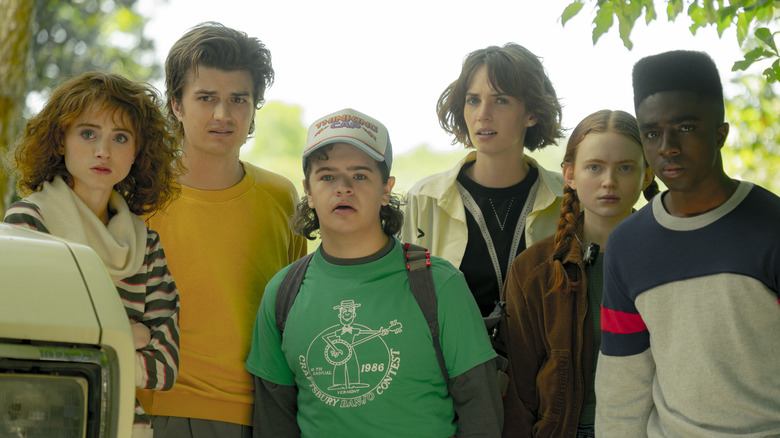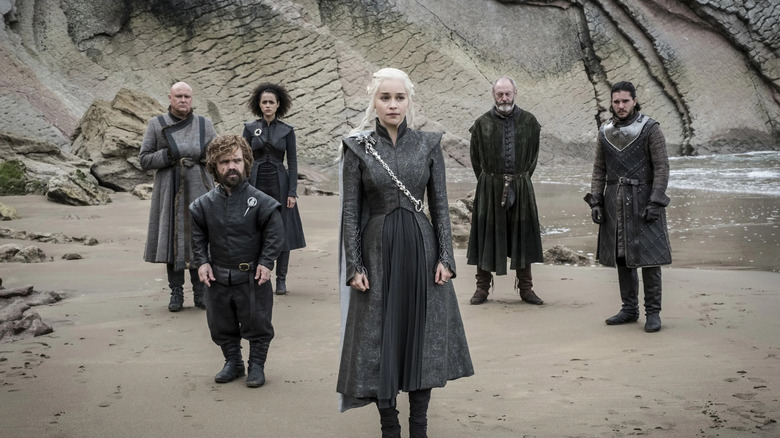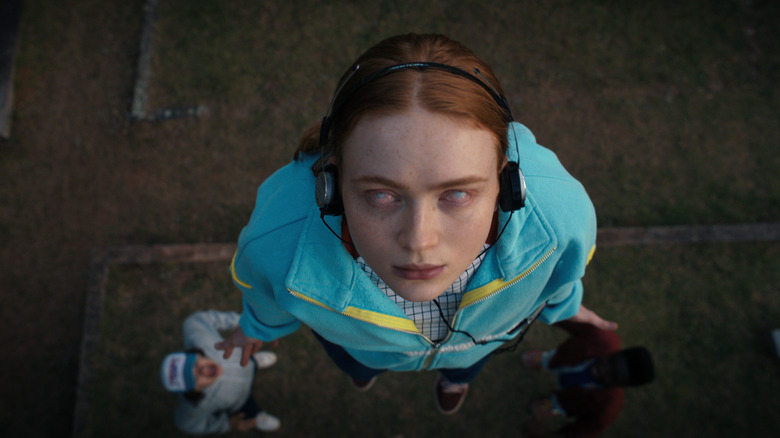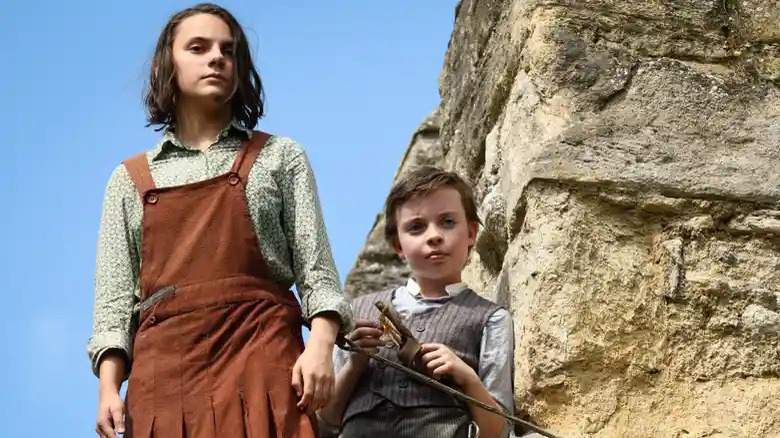The Overstuffed Stranger Things 4 Shows Why Every Series Doesn't Need To Be Game Of Thrones
It's been three years since the last time we visited the town of Hawkins, but "Stranger Things" is finally back with new episodes. Season 4 does many things right, from embracing anime and D&D, to actually being quite scary, to its satanic panic storyline, and everything Maya Hawke and Joe Keery do.
And yet, I couldn't help but think that the show was much better when it was focused on one, maybe two storylines you could easily follow.
You see, this season we've got Eleven and the endless flashbacks to her being bullied, Joyce Byers traveling to Russia to rescue Hopper, Hopper's own imprisonment in Russia, as well as Will and Mike's journey out of California with the delightful stoner Argyle. And if that wasn't enough, we still have Dustin, Lucas, Nancy, Steve and Robin's story from inside Hawkins as a new monster terrorizes the town. Those are a lot of storylines to keep track of, especially for a show that started as small as "Stranger Things."
The Westeros problem
"Stranger Things" was always a show that did "mood" better than lore. The series was a great recreation of the Amblin Entertainment iconography, from the soundtrack to the character archetypes and dynamics. But the more the show tried to do world building and add layers to its Upside-Down mythology, the more convoluted everything else felt — forcing the characters to split into different subplots that could each add another mystery to the story.
The result is a fourth season that feels made up of chores, storylines forced upon the characters by the need to get to the next set piece. With so many storylines and so many characters, old and new, you're going to have to wait a long time before seeing your favorite character again from one episode to the next.
This is par for the course in a trend that has been going on for a few years now, a trend that became most intensified when "Game of Thrones" became the biggest show on the planet. A trend wherein genre shows started trying to balance more storylines and episodes than they could handle in an episode, making them feel convoluted and overstuffed no matter how simple the premise.
Of course, the juggling of multiple stories made sense for "Game of Thrones," as that show did have hundreds of characters living across two continents and a story that spanned years. Cutting from Ned Stark in King's Landing to Jon Snow north of the Wall, to Daenerys across the sea could be a bit confusing to audiences, but you knew there was a method to the madness.
The wrong lessons learned
Of course, this is not a problem unique to "Stranger Things," but a symptom of a larger issue with streaming TV, particularly genre shows. With how incredibly successful "Game of Thrones" was in every sense of the word, it brought an air of prestige to the fantasy genre that was once considered lesser. Add how the era of streaming allowed for TV shows to more easily do world building and introduce lore without boring the audience, and you have a wave of genre shows trying to do world building through separate character's stories, adding dozens of characters and splitting them up in order to build different parts of their world.
Indeed, this was the wrong lesson to learn from "Game of Thrones." Rather than look at its grand production and learn from the care given to costume and set designs, or the seriousness given to the source material, almost every big-budget genre show since then has mostly just followed the splitting of the characters into way too many subplots. The problem is that, even if the world is fascinating and the lore the absolute coolest, there is no helping the show if people have to wait three episodes to catch up on the one character they like.
A larger problem
Whether it's "The Witcher" confusing audiences with not just multiple storylines, but multiple timelines, or "His Dark Materials" taking a relatively simple story and turning it into an unwieldy and convoluted mess, having easy-to-follow stories is a thing of the past.
Having an interesting lore or relatable characters isn't enough. With the freedom to have episodes go longer than the network 42 minutes, you now have to fill the runtime with as many different stories as humanly possible, because more is now better. Your show doesn't need a spider web's worth of interconnected plots and characters that barely ever meet, but affect each other in tiny little ways, all for the promise of everything colliding in an explosive finale.



